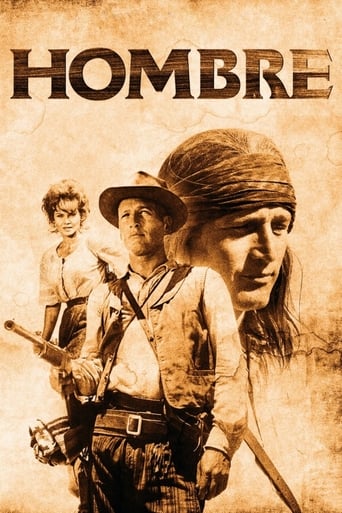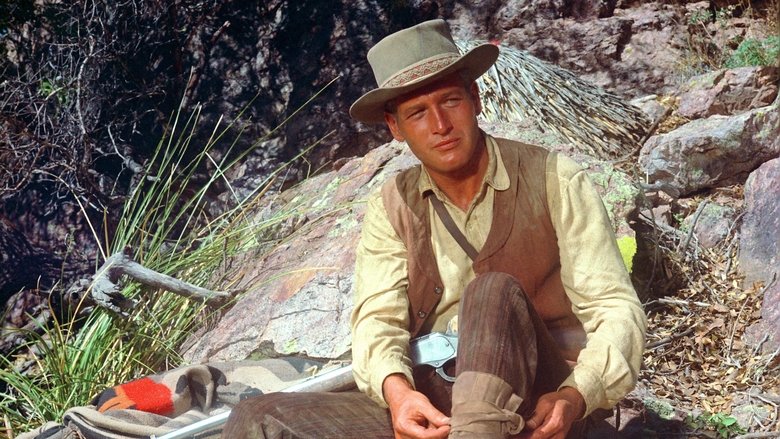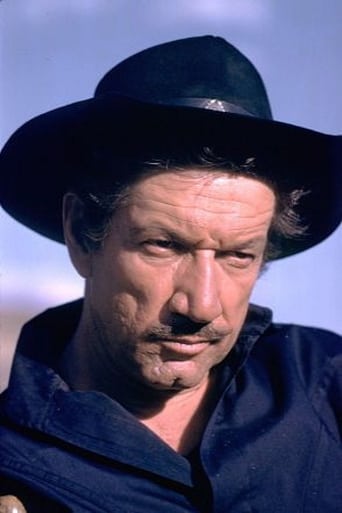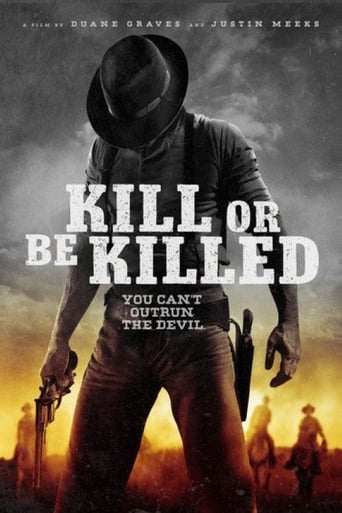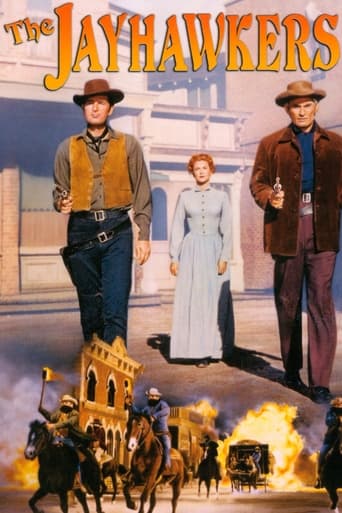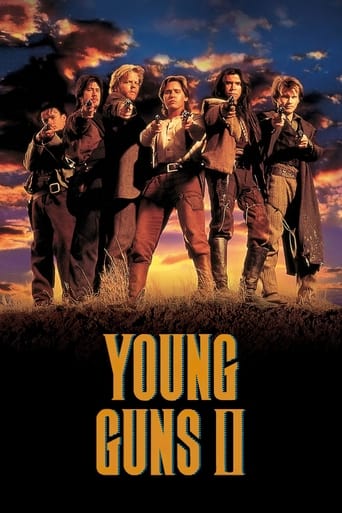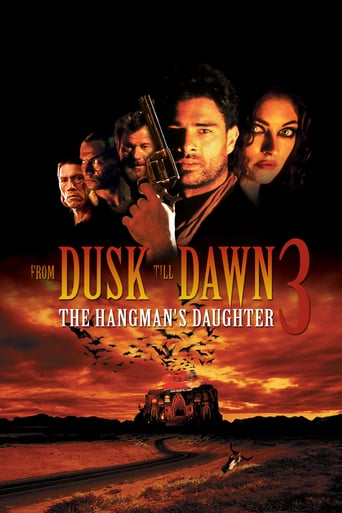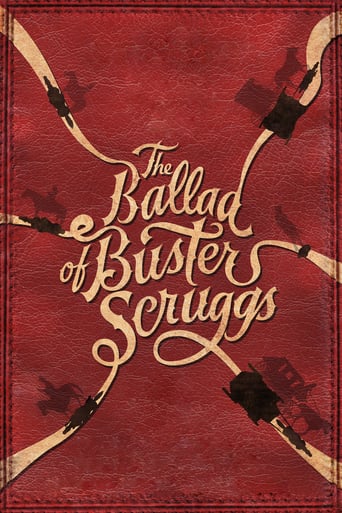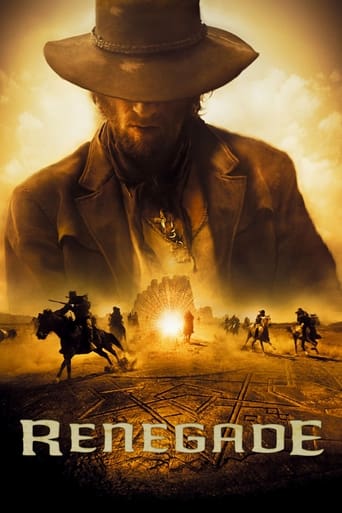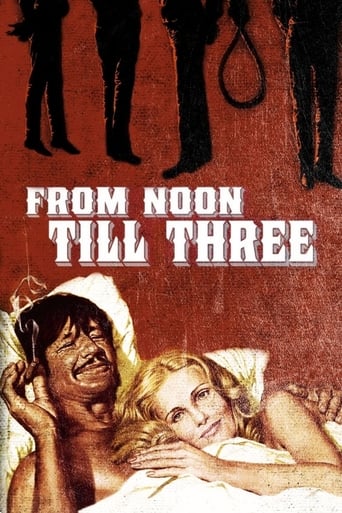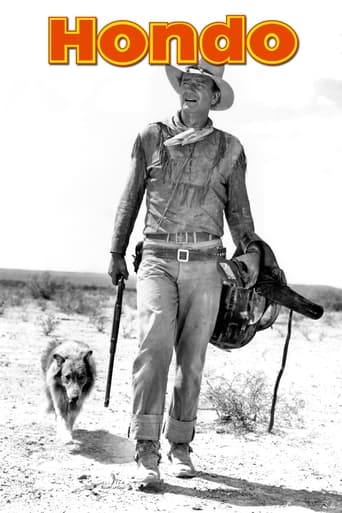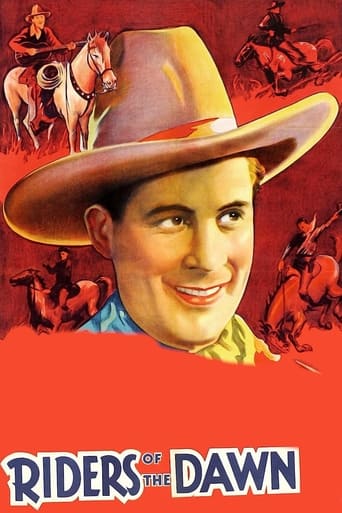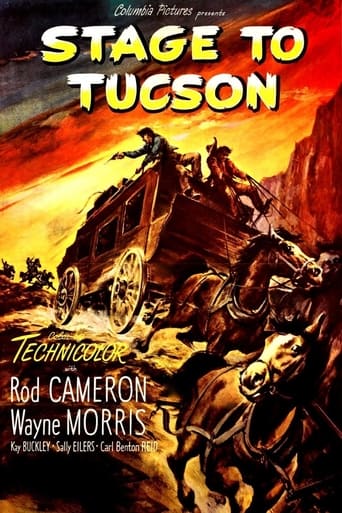Hombre (1967)
John Russell, disdained by his "respectable" fellow stagecoach passengers because he was raised by Indians, becomes their only hope for survival when they are set upon by outlaws.
Watch Trailer
Cast


Similar titles
Reviews
I must say I was somewhat intrigued about this movie, seeing how there's Paul Newman, indians and all. Even so, it was quite the letdown. You come here for Paul Newman, you're in luck - his performance is good, even though his character isn't. Everything else though? Pretty awful. You can see the plot unfolding from miles away, it's just that obvious and dull. The other characters are equally uninteresting and transparent. There are far better westerns out there and, if you're reading this, do yourself a favor and don't watch this movie unless you really must. I sure regret watching it and that doesn't happen with many a movie for me.
"Hombre" is a motion picture combining the talents of two veterans of the famed Actors Studio in New York: director Martin Ritt and actor Paul Newman. The final movie in their multiple film collaborations, "Hombre" tells a good story with a nuanced message about the treatment of Native Americans.Newman plays the character named John Russell, whose background is that of a native of the Cherokee nation. Raised in the Cherokee culture as a boy, Russell now is starting out to make his way in the world of the men who destroyed his native culture.The action of the film is a lengthy story of survival where Russell is part of an entourage in a stagecoach that is robbed. The large stash of money was originally stolen by a doctor employed by the government to oversee the Cherokee reservation. Now, some desperadoes, led by Richard Boone in a star turn as the villain, attempt to rob the doctor. The money really belongs to the Russell's tribe, yet he is now in forced to choose whether or not to assist the bystanders in the stagecoach in a long march across the desert.SPOILER ALERT: The drama has some enormous plot holes, including the unexplained moment when the stagecoach is robbed, yet the thieves do not remember to take the money! Then, in the climax, Newman's character plans to kill the robbers, yet he too does not take the money bag that is to be offered for the exchange of the doctor's wife.Beyond the muddled narrative, the scenery of the Southwest is gorgeous, and Newman turns in an exemplary performance, especially in his understated reading of some excellent lines of dialogue.
Hombre (Paul Newman) is a white Apache wrangling wild horses for stagecoaches, but they're soon shutting down with the approaching railroad. He has many names. One of them is John Russell. Old man Russell had rescued him as an Apache boy in Army prison but he returned back to the Apache life. Mendez (Martin Balsam) comes to him with news of the old man's death and that he has inherited a boarding house. Jessie manages the home. Couple Billy Lee and Doris are boarders as well as Mendez. John Russell trades the house for a herd of horses leaving everybody without a home. The group joins the stagecoach hired by Indian agent Faver and his wife Audra out of town. John Russell is dressed as a white man. When his heritage comes out, he's forced to ride on top. They are robbed by bandits led by Cicero Grimes and it turns out that Faver had stolen money out of the government leaving his Indian charges short of food.Based on the Elmore Leonard novel, this has a cast of intriguing characters. There are a couple of instances where it struck me wrong. Hombre is facing a wounded bandit in one scene where he should have killed him. It seems wrong that Hombre would let him go. The man is out in the open and wounded right in front of him. Another scene in the last act has Billy Lee worried about shooting a bandit in the back. It's pushing the point too hard. I would certainly love to see an even harsher remake. The acting is great. It's a special western despite a couple of awkward scenes.
Just a few observations on the source and themes of this classic film that I haven't seen mentioned here. The source novel, or novella, really, at 99 pages, differs from the film in its collection and details of characters. Elmore Leonard's John Russell is about twenty- one years old. Newman was forty-one at the time - this required some changes to the plot and characters. The passengers in Leonard's story feature an eighteen-year-old white girl who has recently been freed from the Apaches after being held for a few weeks. She had to be changed into Diane Cilento's character. Russell's attraction in the novel doesn't become obvious until the climax. The novel is narrated by the kid, who is unmarried and leaving on the stage to seek his fortune in the world. Thus the screenwriters set the stage for a new thread of dialog during the trip around the nature of civilized relations between the sexes vs. that of the Indians. This not only replaces the brief discussion of the young girl's experience but provides padding for the longer form of the movie. It does seem out of place in this story, however, as a distraction from the buildup of suspense. But it is almost a requirement for Westerns from this period. The bad guys in the novel featured both cowboys from Delgado's bar, including the one who got his nose broke. The film, for some reason, substitutes Cameron Mitchell's bad sheriff for one of them, and this only reduces the suspense of whether Russell will be recognized, the irony of which is a central point to the plot. So, if Ford's 1939 movie makes the point that Ringo Kids are sometimes necessary in times of war, Elmore Leonard offers a more nuanced take on whether the good guys are all that good, and where virtue might be found.

